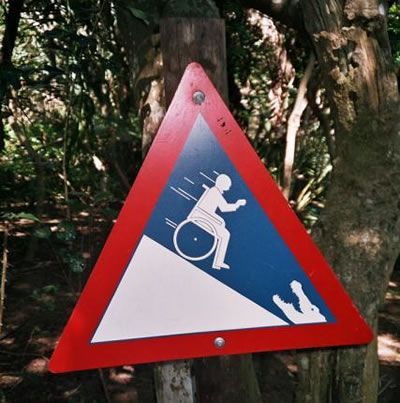Problem? Or Purpose & Potential?
This is a subtitle for your new post
I originally wrote this over 9 years ago! It was posted on my ancient ‘Musings of a kids worker’ blog, but I found the draft of it when sorting through old files trying to find something else.
Because it’s ‘Disability History Month’ I’ve been picking up some historical blogs again and this has been added to them. I’ve done some light editing, just to bring it up to date in language and my own maturing in ministry. Happy reading!
I was a kid’s worker and therefore I believe in evangelism amongst children. I have a passion to see ALL kids responding to God and growing in faith. All this regardless of ability.
When we think of evangelism and work with kids, where do those with disabilities and additional needs fit in? Are they even part of our thinking when we write our evangelism plans and goals?
It is sad that in many churches, children in general are not part of the official outreach programme, but children with additional needs and disabilities?
When we think of additional needs and disability, are we tempted to see the problems? Or can we see beyond potential difficulties and see firstly, a child and then the potential for faith and a life lived with God?
It is always a temptation to not see the child, but the diagnosis instead. We’re tempted to recruit volunteers for a problem that needs sorting out rather than asking people to catch the vision for enabling this child to be everything they can be in Christ.
When I run training days, I find people want me to fix the “problem” with a quick fix or a ‘sticking plaster’. It takes a long time to shift the focus from ‘problem’ to ‘purpose and potential’
Let’s be realistic here – usually, the only children with disabilities and additional needs in our children’s work across the country are those whose families are already part of the church community. Our midweek clubs have children with additional needs who come from families on the edge of church. With both of these groups – we struggle, so how on earth can we cope with bringing more in?
As a teenager, and for many years after I worked on a summer camp for children with physical disabilities – I loved it! Many children came to know Jesus in a very real way, but, where could they go after camp? For a child with quadriplegic cerebral palsy, whose parents don’t want to go to church – how do we help them access church, and how do we keep them there? In rare cases – it happened, but as a rule, it didn’t.
I’m still in touch with a few of the campers – all of them now adults. Some have chosen not to follow Jesus anymore, some have other beliefs now, some have returned to faith, a few are on the edges of local church communities.
Churches failed most of them.
It’s these ex-campers who have helped me cope with my own onset of disability. I have learned much from them, both then and now, and I am grateful.
So who is reaching out to children with additional needs and disabilities in our communities today?
Well, some are, but not enough.
I’ve already been ‘realistic’ – now I’m going to be brutally honest…… Many children have life limiting disabilities – I’ve been to far too many funerals and held too many dying children for me not to be honest! Thankfully, some of those children and young people have had a solid faith and a huge witness to their friends, but equally – there are so many more who are not in relationship with Jesus. These children and young people have less time to hear the Gospel than others – the need is urgent!
2021 edit: I have to add here that I’m not just worried about short life spans now, but the fact that so, SO many Children and young people with additional needs are being rejected from church. This is now the the bigger problem – they are leaving the Church in much greater numbers and not returning. Add to this the fact the the suicide rate amongst neurodivergent young people is rising fast.
We believe in the Gospel, we believe in spreading it, but do we believe in taking it to some of the most vulnerable kids in our communities – is “The Church” brave enough to step up to the ‘challenge’ – and not to see it as a problem but huge potential?










